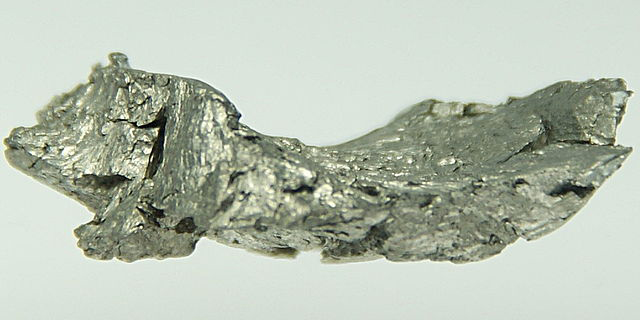Researchers from McGill University accessed the CNBC to prove that yes, you can do neutron scattering on gadolinium compounds, and have attracted international collaborators as a result.
12th Canadian Neutron Scattering Summer School
The Canadian Institute for Neutron Scattering held the 12th Neutron Scattering Summer School at Chalk River on June 2 – 7, 2013. The school was organized by the Canadian Neutron Beam Centre. Continue reading 12th Canadian Neutron Scattering Summer School
Understanding Stress in Ship Hulls to Enhance Reliability
Defence Research and Development Canada sponsors research that needs stress data from the CNBC to understand the strength of ship hulls.
Continue reading Understanding Stress in Ship Hulls to Enhance Reliability
Reducing maintenance costs of military ships
Defence Research and Development Canada (DRDC) accessed the CNBC for award-winning cooperative research with Canada’s allies.
Continue reading Reducing maintenance costs of military ships
Enabling Lighter, Better Car Engines
Stress data from the CNBC led to a further project to develop manufacturing methods to optimise performance of lightweight alloys for car engines.
Continue reading Enabling Lighter, Better Car Engines
2012 CINS Annual General Meeting
Brock University will host the CINS Annual General Meeting on October 26-27, 2012. Continue reading 2012 CINS Annual General Meeting
Molecular “Ball on a Spring” Discovered
An international collaboration involving the CNBC serendipitously finds molecular “ball on a spring” while doing research for nuclear energy.
Continue reading Molecular “Ball on a Spring” Discovered
Studying New Iron-Based Superconductors
Superconductors aren’t just for cool levitation demonstrations; a key discovery in this field could disrupt technologies for computing, medical imaging and power transmission lines as we know them today. The CNBC’s unique expertise and scientific tools are enabling Canadian and international researchers to make cutting edge discoveries in this field.
Continue reading Studying New Iron-Based Superconductors
Studying Bio-Molecules in Cellular Membranes
Respiratory distress syndrome (RDS) is a leading cause of death in babies up to one month old in the developed world because it makes breathing difficult. Researchers from Brock University use neutron beams to study biomolecules in the hope that it will lead to more effective treatments for RDS and other diseases, and to a molecular-level understanding of what vitamin E does in our bodies.
Continue reading Studying Bio-Molecules in Cellular Membranes
Hydrogen Storage Materials for Clean Cars
Researchers from the University of Alberta use neutron beams to discover how thin metal layers enhance store hydrogen effectively, aiming to one day enable hydrogen-powered cars without the safety issues of pressurized tanks.
Continue reading Hydrogen Storage Materials for Clean Cars








